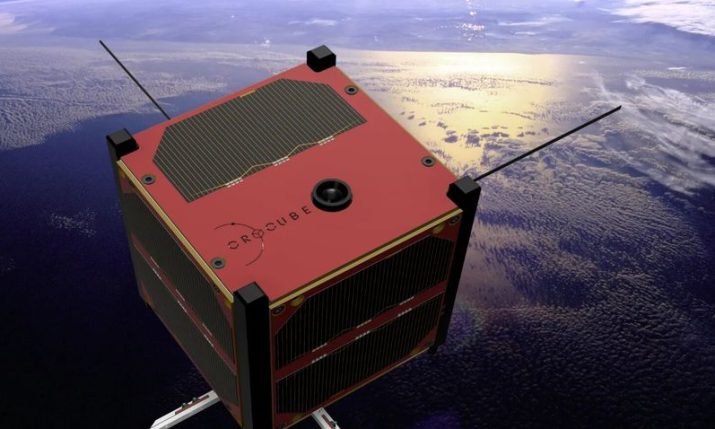
(Photo: CroCube)
ZAGREB, 22 December 2024 (Hina) – Croatia’s first satellite, CroCube, was successfully launched into space on Saturday from the Vandenberg Space Force Base in California, USA.
The satellite has already established its first communication with Earth, marking a historic step as Croatia enters the era of space technology, the CroCube mission announced.
CroCube was launched aboard a Falcon 9 rocket operated by the space company SpaceX as part of the Bandwagon-2 mission in the United States.
With this milestone, Croatia has joined a list of over 80 countries with their own satellites in space, said Daniela Jović, the mission leader for CroCube.
The successful launch commenced at 12:34 pm Croatian time, and by 2:16 pm, CroCube had successfully deployed from the rocket, reaching its permanent equatorial orbit around Earth at an altitude of approximately 550 km, where it will remain operational for about two years.
Later in the afternoon, at 3:05 pm, CroCube made radio contact, successfully transmitting its first signal back to Earth. A recording of the rocket launch can be viewed on SpaceX’s official YouTube channel (Bandwagon-2 mission).
“CroCube is in nominal, good condition. We are monitoring its telemetry data through the global SATNOGS network, which brings together amateur radio enthusiasts with advanced ground stations, enabling satellite tracking worldwide. The public can already follow CroCube via our mobile app, available for free on the App Store and Play Store,” said mission leader Jović.
Croatia Enters the Space Era with CroCube
CroCube is a nanosatellite measuring 10 x 10 x 10 cm and weighing 1.1 kg. From its orbit at 510 km, it will photograph Earth and conduct scientific measurements over the next two years.
(Photo: CroCube)
This historic event has ushered Croatia into the space era, overcoming numerous administrative, technological, and logistical barriers along the way, emphasised Jović.
The primary goal of the project is to drive technological development in Croatia and increase public interest in astronomy and space projects, alongside the advancement of STEM sciences and high-tech entrepreneurship.
A secondary objective is to gather data using the Croatian-made scientific module Astrotron 1000, embedded in CroCube. This module collects information on the degradation of microelectronics under high radiation and extreme temperature conditions.
Future Croatian space companies will be able to base their commercial projects on the data derived from these measurements.
The launch of CroCube is the result of three years of work by dozens of volunteers in Croatia, led by mission leader Daniela Jović. In collaboration with the Czech company Spacemanic and the Association for Education Beyond Frameworks (EVO), this volunteer team successfully designed, assembled, and launched Croatia’s first satellite. However, they emphasise that the satellite launch is just the beginning.
“As challenging as these first three years of work leading to the launch have been, the real work begins now. We volunteers have proven that Croatia is capable of entering the space sector, removing administrative and logistical barriers. Now it’s time for others to step up and become part of an industry projected to be worth $1 trillion by 2030. Some Croatian companies partnered on this project have already begun developing their first commercial ventures in the space business, and we are ready to share our knowledge, experience, and support with others interested,” said Daniela Jović.
She added that they are in the process of setting up an educational and presentation centre in Zagreb to offer further support.
Information about the CroCube satellite can be found on the website www.crocube.hr.
A press conference to discuss the success of the CroCube mission and the reception of its first signals will be held on Monday, 23 December, at 10:00 am at ZICER, located at the Zagreb Fairgrounds. All those involved in Croatia’s first space mission are expected to attend, the mission team announced.
